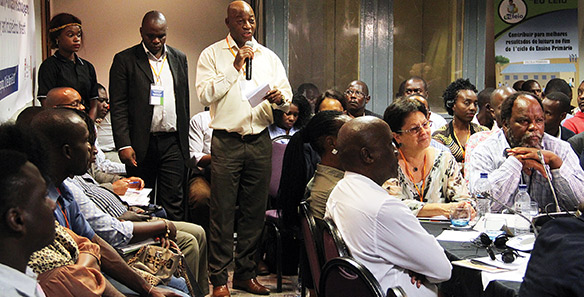Mozambique: Three training institutes closed for lack of documentation
Teacher and pupil absenteeism compromises Education – Mozambique

O País
Absenteeism by both teachers and pupils, particularly in rural areas, is severely compromising the quality of Mozambican education, warned Samaria Tovela, the National Director of Secondary Education in the Ministry of Education on Wednesday.
Speaking in Maputo at an international seminar on community participation in school management, Tovela said the failure to take any action against absentee teachers in the districts, or to control how much time they spent in the classroom, are among the factors leading to poor academic performance by pupils.
The solution, she said, must involve the application of administrative sanctions, ranging from wage cuts to expulsion from the state apparatus for teachers who do not perform the tasks expected of them.
“What we are seeing is that, unfortunately, administrative measures are not used”, Tovela said. “The teacher misses a lesson, and he could be marked absent, but he suffers no deduction from his wages. And so he misses another lesson”. She pointed out that a norm in the public administration is that anyone who is absent, without good cause, for more than 30 days, should be thrown out of state employment.
As for absenteeism among pupils, Tovela blamed this on parents and guardians who do not regard school attendance by their children as a priority.
“Absenteeism results from the fact that parents do not understand the meaning of children going to school. If the parents don’t see the school as something important, then obviously neither will the child”, she said.
To overcome this problem, capacity building sessions are being held in the provinces for the management bodies of school councils who work with the communities.
The executive director of the Civil Society Centre for Learning and Training (CESC), Paula Monjane, said that a CESC study had found that pupil absenteeism in rural areas is linked to such cultural phenomena as initiation rites. Pupils are forced to interrupt their studies to attend the rites.
Monjane added that a large number of children abandon school to look after domestic chores instead, including work on their parents’ farms. “The parents and guardians are prioritizing work on the fields”, she said.
The CESC report notes that where the community participates in school management, teaching and learning conditions improve.












Leave a Reply
Be the First to Comment!
You must be logged in to post a comment.
You must be logged in to post a comment.